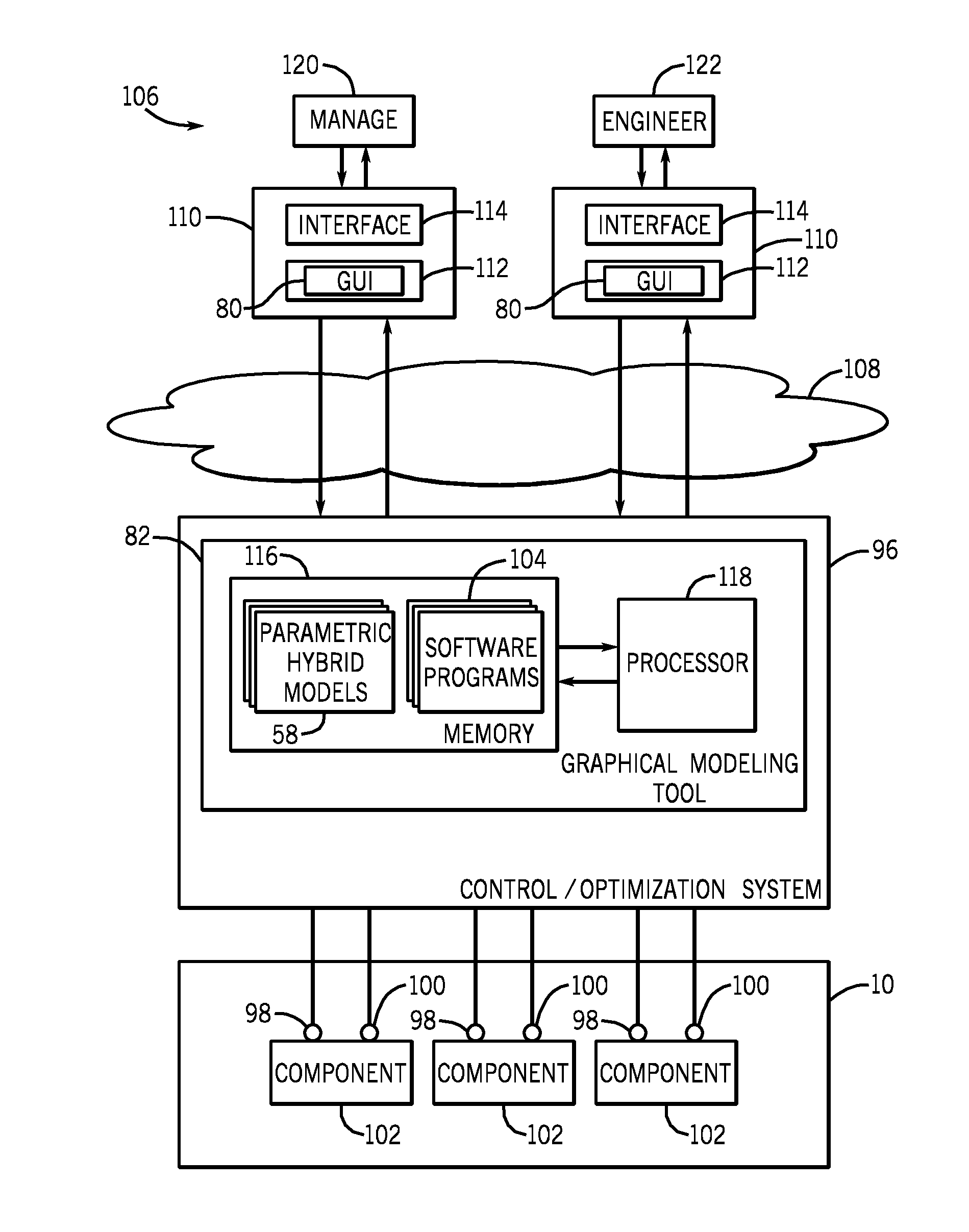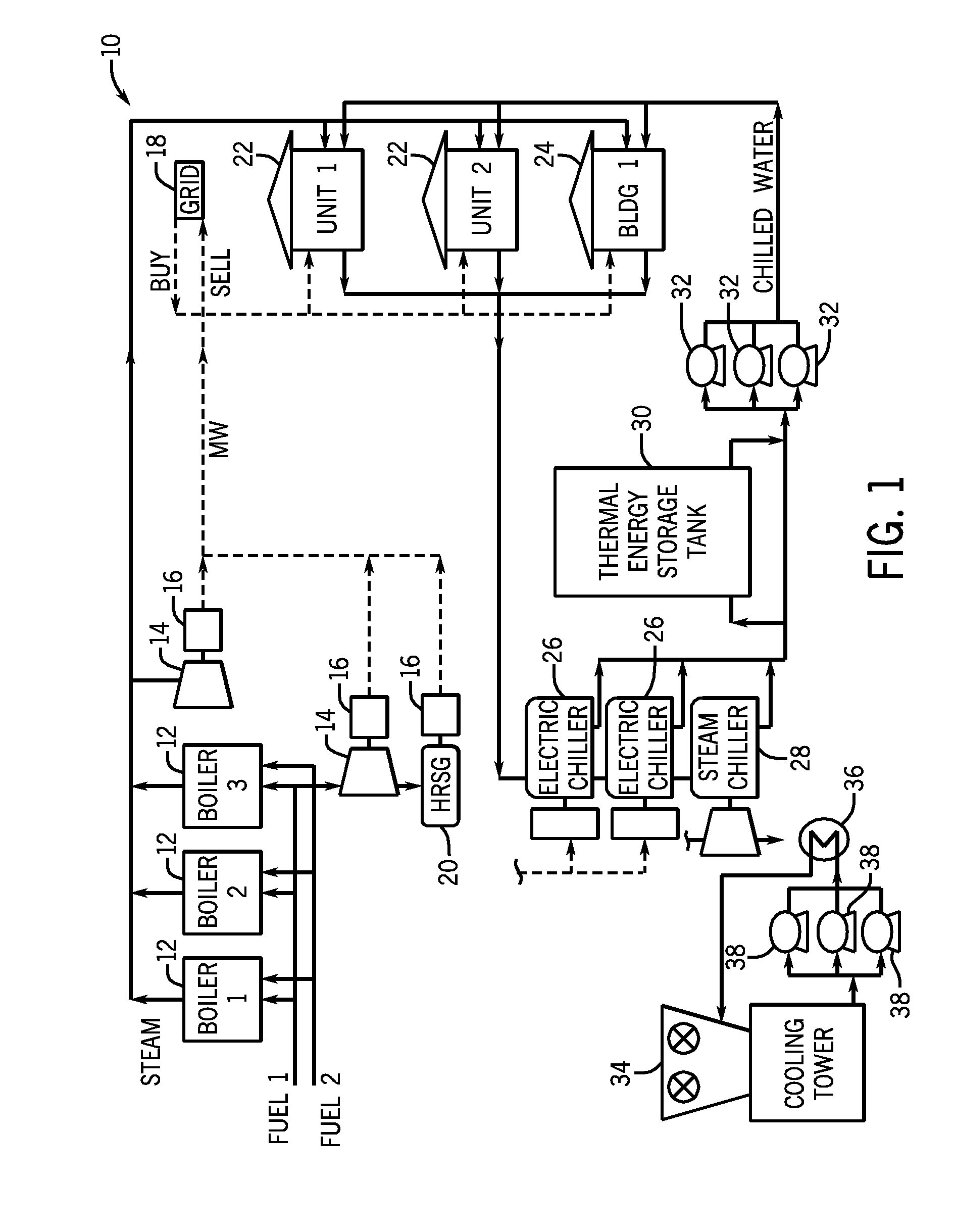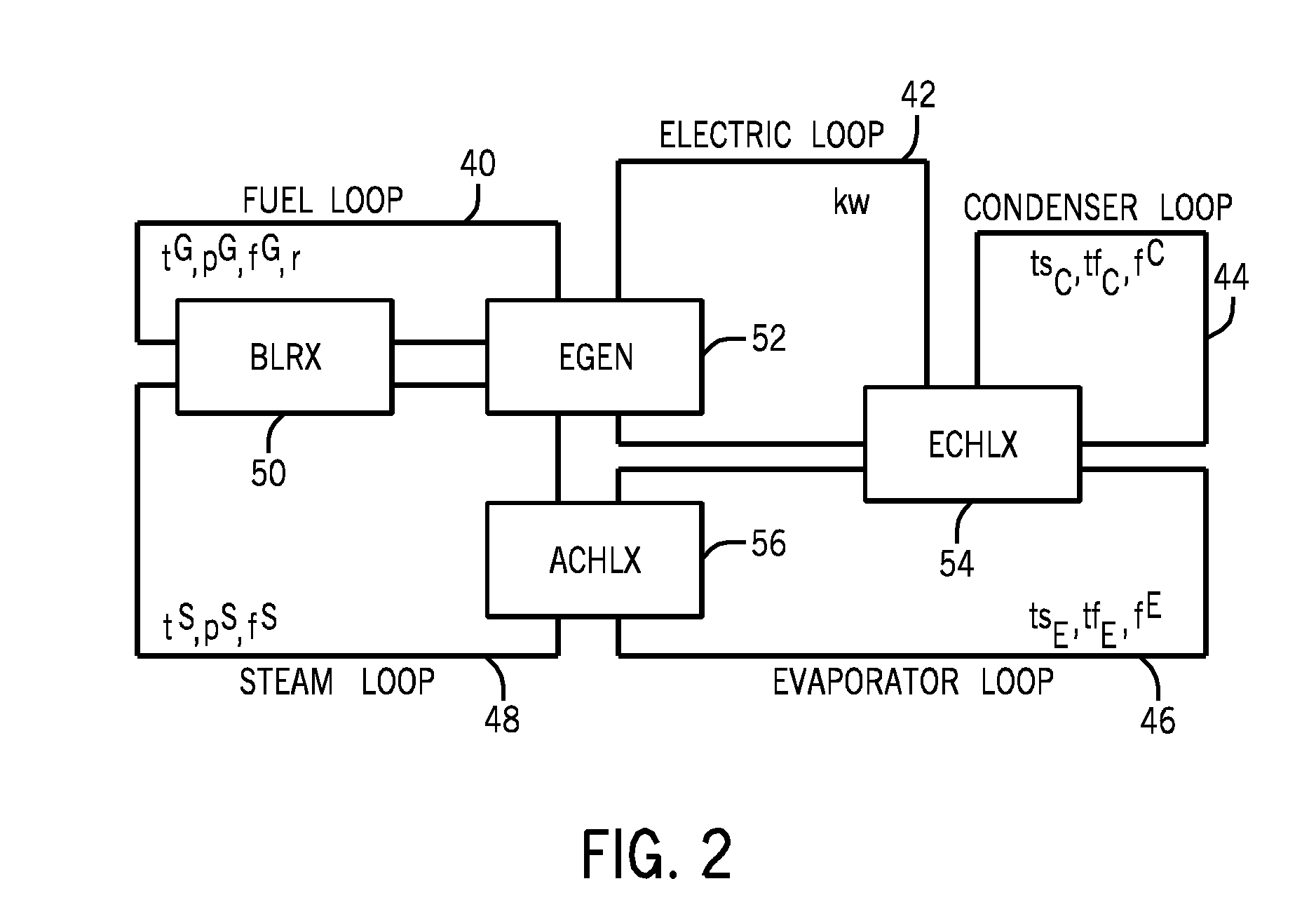Graphical language for optimization and use
a graph and optimization technology, applied in the field of industrial plants and enterprises, can solve the problems of introducing significant challenges to the robustness, cost-effectiveness, environmental footprint of the operation, and unable to meet the requirements of enterprise and respecting the operational constraints of the plant, and achieves the effect of reducing the cost of operation
- Summary
- Abstract
- Description
- Claims
- Application Information
AI Technical Summary
Benefits of technology
Problems solved by technology
Method used
Image
Examples
Embodiment Construction
[0019]As described above, there is often a discontinuity between the generally offline (i.e., not during operation) planning and scheduling activities of a plant and the generally online (i.e., during operation of the plant) control and operation activities of the plant. The embodiments described herein address the three main challenges that have contributed to the persistence of this deficiency. First, the embodiments described herein provide a versatile modeling framework for representing an entire plant and, indeed, an entire enterprise including one or more plants. Existing modeling frameworks are generally unable to: (a) capture relevant details of plant operation as it pertains to economic objectives of the enterprise, (b) avoid prohibitive complexity given the number of components to be included in the models that represent the plants, and (c) maintain modularity such that there is an intuitive correspondence between the components of the physical plants / processes and the mod...
PUM
 Login to View More
Login to View More Abstract
Description
Claims
Application Information
 Login to View More
Login to View More - R&D
- Intellectual Property
- Life Sciences
- Materials
- Tech Scout
- Unparalleled Data Quality
- Higher Quality Content
- 60% Fewer Hallucinations
Browse by: Latest US Patents, China's latest patents, Technical Efficacy Thesaurus, Application Domain, Technology Topic, Popular Technical Reports.
© 2025 PatSnap. All rights reserved.Legal|Privacy policy|Modern Slavery Act Transparency Statement|Sitemap|About US| Contact US: help@patsnap.com



